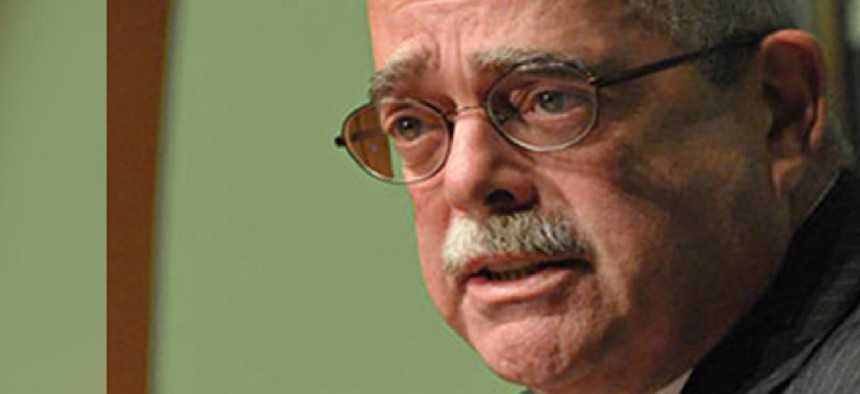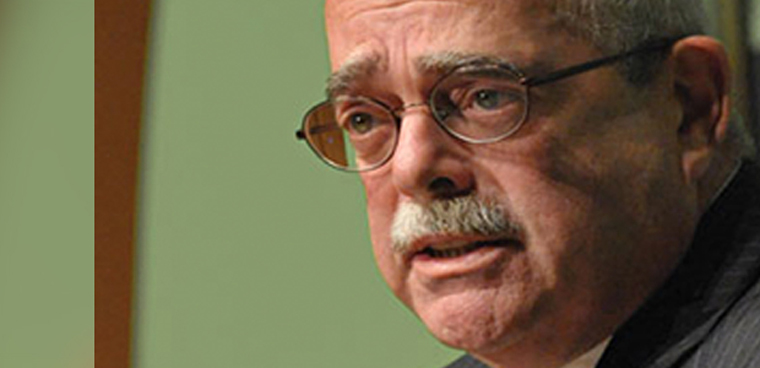How Congress is going to watch FITARA

CIOs are warning lawmakers that they're about to discover the hidden costs of implementation.

Democratic Rep. Gerry Connolly says FITARA is especially imporatant "in an era of constrained resources."
Early indications are that Congress is going to play an active role in making sure that recent IT legislation giving more authority to agency CIOs and mandating progress on data center consolidation works as intended.
One plan being kicked around is for the House Oversight and Government Reform Committee, where the Federal Information Technology Acquisition Reform Act (FITARA) originated, to hand out report cards to agencies based on their execution of implementation plans. Those plans are due to the Office of Management and Budget on Aug. 15. Early indications are that agencies will be graded based on a combination of their performance on OMB's IT Dashboard and audits and oversight performed by the Oversight panel.
"Say what you want about grades. If you need to get attention and focus, grades work," said Dave Powner, who heads IT oversight at GAO. Some metrics under discussion include measuring an agency's shift to a more agile, incremental development model, and using data gleaned from OMB oversight under the PortfolioStat program. Powner also expressed interest in looking at agencies’ success in retiring legacy applications. But Powner, speaking at a FITARA implementation event held by MeriTalk, noted that it's going to be tricky to develop the right criteria.
Should agencies that take a fully transparent approach and award themselves yellow and red warning lights in the IT Dashboard for at-risk projects get rewarded for honesty, or pilloried for failure, Powner asked.
"However they measure, it should drive good behavior," Powner said.
One of the bill's authors, Rep. Gerry Connolly (D-Va.), remains on the Oversight committee, and plans to watch implementation closely. He's one of a handful of members in either party who identify as policy experts in this area. He said that Congress didn't have much of an appetite for IT policy because it doesn't fit neatly into partisan narratives, and because despite the federal government's $80 billion annual spend on technology, the issue doesn't resonate with voters.
"Talking about IT procurement doesn't get you on Fox News," Connolly said.
Connolly sees FITARA as "a helpful management tool for getting us into the 21st century, and getting IT management and efficiency to a different plateau," he said at the MeriTalk event. "We see IT as a transformative process. Especially in an era of constrained resources, it is more important than ever that we take advantage of it," he said.
Hidden costs of implementation
Things look a little different for CIOs in the trenches than they do in Congress, or at OMB.
The legislation, designed to empower agency-level CIOs, has the potential for unintended consequences in the lower ranks of federal agencies, warned Chad Sheridan, CIO of the Risk Management Agency at the Department of Agriculture.
"I’m concerned about the tone and propensity for these kinds of implementations and action to become compliance activities," Sheridan said. In 20 years of federal service, Sheridan said he's seen reforms that "ending up being a lot of bureaucratic tape instead of adding to mission value." He's concerned that FITARA implementation could end up creating duplicative reporting structures and cost agencies more money that they can’t afford.
Another consequence of FITARA implementation will likely be more accurate metrics on what the federal government spends on IT. Richard McKinney, CIO at the Department of Transportation, said that bureau CIOs didn't have IT spending broken out in budgets.
"It's embedded so far down in the programs, we have to go back and pull it out," McKinney said. But there's a lot of shadow IT lurking inside agencies, and tracking them is more urgent because of cybersecurity risks. "Anything that touches a network, I have to know about it," he said. "There's tech that's deeply embedded in things, whether it's HVAC or complex lab technology. Whatever it is, if it's a gateway to the rest of the organization, I own it."
Congress may be in for a rude awakening when it comes to the total federal IT spend. "If you look at all this, there's much more than $80 billion being spent," Powner told FCW after the event.



